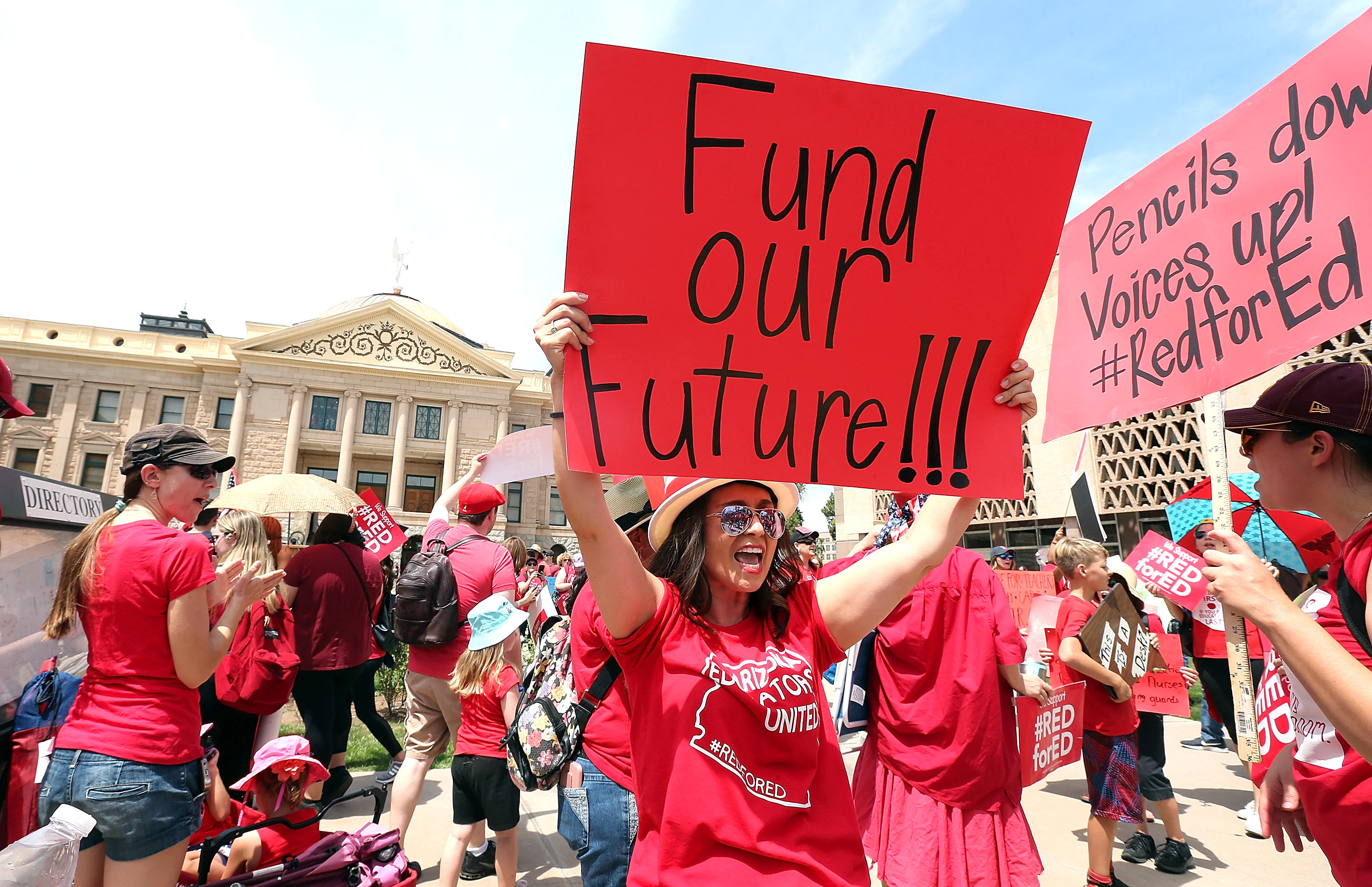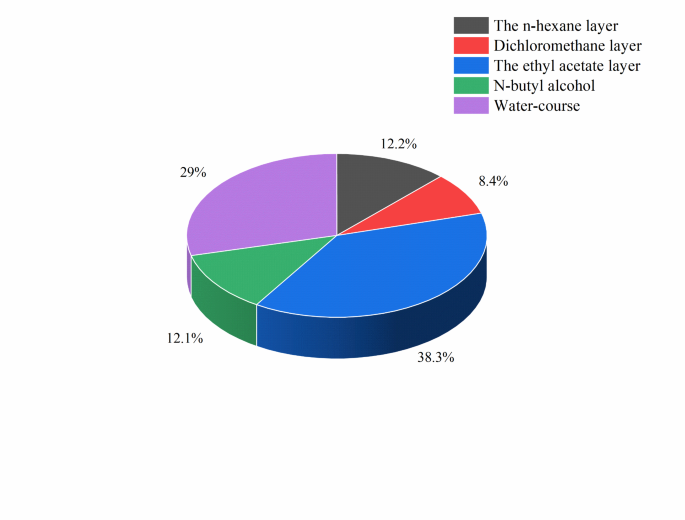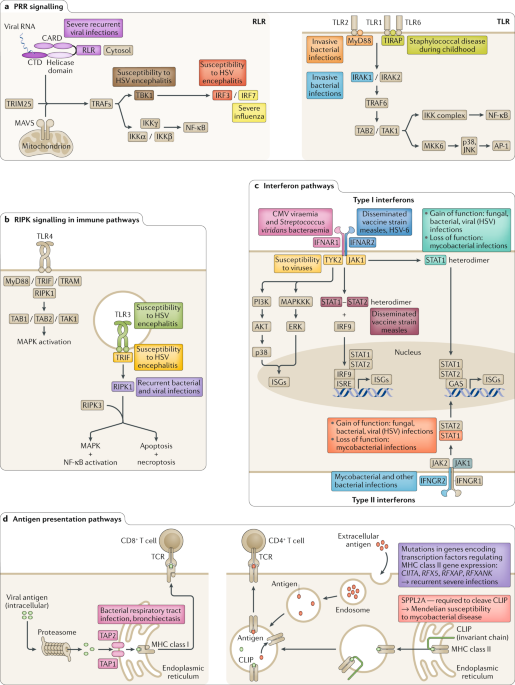
- Select a language for the TTS:
- UK English Female
- UK English Male
- US English Female
- US English Male
- Australian Female
- Australian Male
- Language selected: (auto detect) - EN
Play all audios:
_Public school teachers are striking for better pay and increased funding for their classrooms. Are they winning? Here's everything you need to know:_ WHERE ARE TEACHERS STRIKING?
Public school teachers have mounted statewide walkouts in six states since the beginning of the year, thronging state capitals with demonstrations to demand better pay and increased funding
for their classrooms. The wave of strikes began on Feb. 22 in West Virginia, which in 2016 ranked 48th in the country for teacher pay, with an average annual salary of $45,622. Roughly
20,000 teachers walked off the job for nine workdays, closing schools statewide until the legislature passed a 5 percent raise for all state workers. Since then, there have been walkouts in
Oklahoma, Kentucky, Arizona, Colorado, and North Carolina. "These places are saying, 'We know that if they've done it in West Virginia, we can do it here too,'" said
Annette Jordan, a teacher at Hedgesville High School in West Virginia. SUBSCRIBE TO THE WEEK Escape your echo chamber. Get the facts behind the news, plus analysis from multiple
perspectives. SUBSCRIBE & SAVE SIGN UP FOR THE WEEK'S FREE NEWSLETTERS From our morning news briefing to a weekly Good News Newsletter, get the best of The Week delivered directly
to your inbox. From our morning news briefing to a weekly Good News Newsletter, get the best of The Week delivered directly to your inbox. WHY THESE STATES? Almost all of the protests have
been in states where Republican-dominated governments have dramatically cut education budgets over the past decade. Many states slashed school funding as tax receipts dwindled in the
aftermath of the financial crisis, and didn't fully restore it when the economy recovered. Tax cuts passed by GOP-dominated legislatures have also cut deeply into education funding.
Arizona, where per-student funding has fallen 13.6 percent since 2008, slashed corporate tax rates in 2011 by 30 percent. Oklahoma, which has seen multiple rounds of tax cuts beginning in
the mid-2000s, has reduced per-student funding by 28 percent since the start of the recession. Educators there just won their first raise in 10 years. HOW HAVE CUTS IMPACTED TEACHERS?
They've been devastating. A recent NPR survey of more than 500 teachers found that 59 percent work a second job to make ends meet, while more than 8 in 10 have bought school supplies
with their own money to be able to do their jobs. Kristina Johnson, an Oklahoma teacher who is paid $44,000 a year despite several degrees and 20 years of experience, says she and her
students must contend with "15-year-old textbooks, wasps living in the ceiling, broken desks, and leaky ceilings." Like many teachers, she works multiple jobs to get by. Kathryn
Vaughn, a teacher with a masters degree and 11 years of experience who makes $50,000 a year in Tennessee, has a $100 annual budget to buy art supplies for 800 students. Some schools have
been forced to switch to four-day weeks just to save money. "We have districts that are choosing between the light bill and toilet paper," said Mark Jewell, head of the North
Carolina Association of Educators. "That's not normal." HAVE THE STRIKES SUCCEEDED? Teachers have won pay raises and some funding increases, but say their grievances have not
been fully addressed. Oklahoma passed its first tax hike in 28 years to raise $450 million in new education funding, but legislators balked at reinstating a capital gains tax demanded by the
teachers' union. Instead, the state passed new taxes on cigarettes, oil, and gas, which some have complained will hurt the poor more than the wealthy. In Arizona, teacher pay will be
raised 20 percent by 2020, but the legislature has refused to restore school funding to pre-recession levels. The state also hasn't provided a realistic plan for paying for the raises,
and some teachers fear that the money will come out of other parts of the state budget, such as Medicaid and other social services funding. WHAT DOES THE PUBLIC THINK? Voters overwhelmingly
support the teachers' demands. A recent poll found that 90 percent of Democrats, 78 percent of independents, and 66 percent of Republicans think teachers aren't paid enough. Half
of Americans said they were willing to pay more in taxes to raise teacher pay and increase school funding. But some conservatives have pushed back at the idea that teachers are underpaid,
saying they get summers off and substantial pensions, which most private sector workers do not. "I don't believe they're undercompensated at all," said Andrew Biggs, who
studies retirement issues at the American Enterprise Institute. "Teacher pensions are a lot more expensive and they're a lot more generous than people think they are."
WHAT'S NEXT? Teacher pay is becoming an issue nationwide. Although teachers are relatively well paid in higher-tax states such as California and New York, the average national teacher
salary decreased 4 percent between 2008 and 2017, when adjusted for inflation. The overall pay gap between educators and private sector workers is growing. Today, teachers make from 60 to 80
percent of what similarly educated workers do in the private sector, depending on the state. Sylvia Allegretto, a labor economist at the University of California, Berkeley, worries that
"these really huge pay gaps" inevitably will erode the quality of the education schools provide America's children. "We have to think about students that are in college
now that are trying to determine what profession they're going to go into," Allegretto said. "Are the best and the brightest going to continue to go into teaching with this
scenario?" SEEKING POLITICAL POWER Teachers are turning to electoral politics in hopes of reversing years of budget cuts. In Kentucky, 40 protesting teachers have announced plans to run
for seats in the state legislature, including eight Republicans. At least a dozen teachers in Oklahoma are also running for office. Strike organizers in Arizona have asked teachers to
redirect their activism to this year's midterm elections. Organizers in the state are hoping to get an initiative on the state ballot that will raise income taxes on wealthy earners to
pay for more school funding. Democratic candidates have also been rushing to align themselves with the strikers. In 2016, President Trump won 17 of the 20 states where teacher pay is lowest.
"A week ago, I would have told you I wasn't going to do it," said Craig Hoxie, a 48-year-old high school physics teacher and U.S. Army veteran who recently filed to run for a
seat in Oklahoma's House of Representatives. "[But] there is a funding crisis with all public services in our state."









